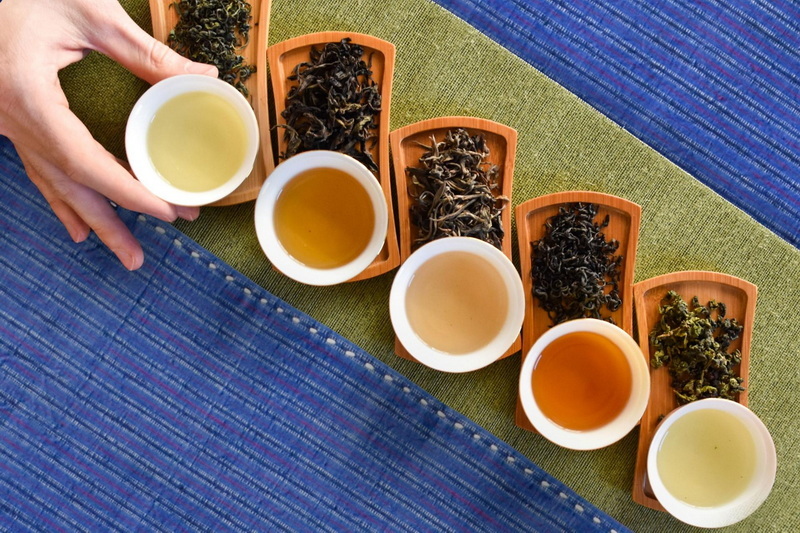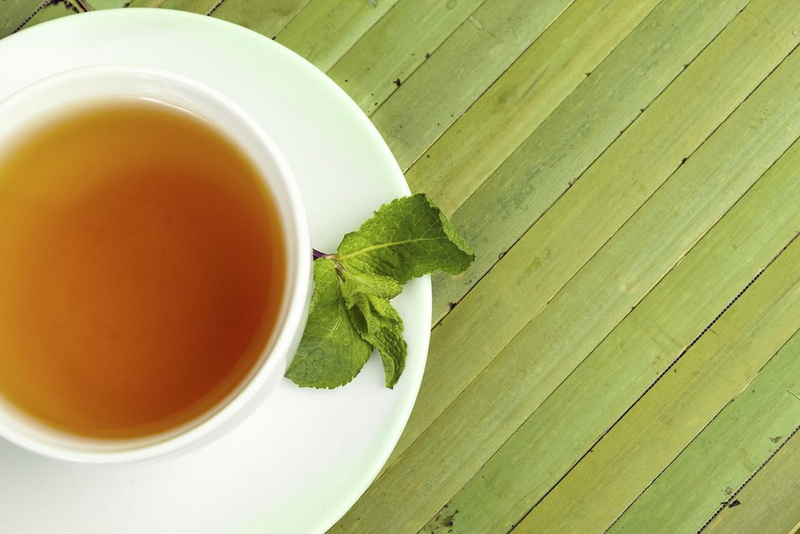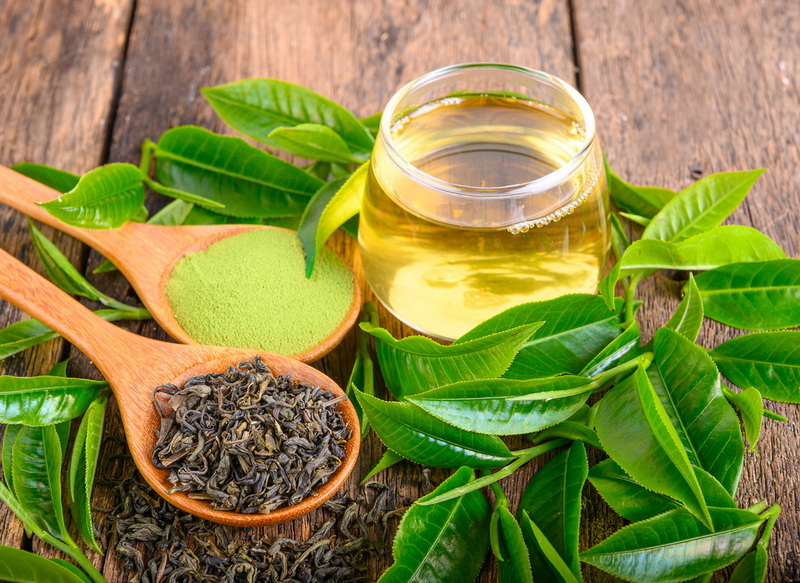Content Menu
● Understanding Green Tea Extract
● The Science of Taste
● Methods to Improve Green Tea Extract Taste
>> 1. Temperature Control
>> 2. Adding Natural Sweeteners
>> 3. Incorporating Citrus
>> 4. Blending with Other Flavors
>> 5. Cold Brewing
>> 6. Using Quality Water
>> 7. Proper Storage
● Advanced Techniques for Flavor Enhancement
>> Molecular Gastronomy Approaches
>> Fermentation
● Pairing Green Tea Extract with Food
● Health Considerations
● Cultural Perspectives on Green Tea Flavor
● The Future of Green Tea Extract Flavor Enhancement
● Conclusion
● FAQ
>> 1. What is the best temperature for brewing green tea extract?
>> 2. Can I add milk to green tea extract to improve its taste?
>> 3. How long should I steep green tea extract?
>> 4. Are there any health risks associated with flavoring green tea extract?
>> 5. Can green tea extract be used in cooking or baking?
● Citations:
Green tea extract is renowned for its numerous health benefits, but its bitter taste can be off-putting for many. This article will explore various methods to enhance the flavor of green tea extract, making it more palatable and enjoyable. We'll delve into the science behind green tea's taste, examine different techniques to improve its flavor, and provide practical tips for a more pleasant green tea experience.

Understanding Green Tea Extract
Green tea extract is a concentrated form of green tea, containing high levels of polyphenols, particularly catechins. These compounds are responsible for many of the health benefits associated with green tea, including antioxidant properties and potential weight loss effects. However, they also contribute to the bitter taste that many find unpleasant[1].
The Science of Taste
Before we explore ways to improve the taste of green tea extract, it's essential to understand the science behind its flavor profile. Green tea contains various compounds that contribute to its taste:
1. Catechins: These are the primary source of bitterness in green tea.
2. Amino acids: Particularly L-theanine, which provides a savory umami flavor.
3. Caffeine: Contributes to the astringency and slight bitterness.
4. Volatile compounds: Responsible for the aroma and subtle flavor notes[3].
Methods to Improve Green Tea Extract Taste
1. Temperature Control
The temperature at which you brew or consume green tea extract can significantly impact its taste. Brewing at lower temperatures (around 160°F or 70°C) can help reduce bitterness and astringency[1].
2. Adding Natural Sweeteners
Natural sweeteners can help balance the bitterness of green tea extract without adding excessive calories:
- Honey: Adds sweetness and complements the tea's flavor profile.
- Stevia: A zero-calorie natural sweetener that can effectively mask bitterness.
- Agave nectar: Provides a subtle sweetness without overpowering the tea's natural flavors[7].
3. Incorporating Citrus
Adding a slice of lemon or a few drops of lemon juice can help neutralize the bitterness of green tea extract. The citrus notes also enhance the overall flavor profile[1][7].
4. Blending with Other Flavors
Mixing green tea extract with complementary flavors can create a more enjoyable beverage:
- Mint: Adds a refreshing note that pairs well with green tea.
- Ginger: Provides a spicy kick and additional health benefits.
- Fruit extracts: Berry or peach flavors can add natural sweetness and complexity[7].
5. Cold Brewing
Cold brewing green tea extract can result in a smoother, less bitter taste. Simply mix the extract with cold water and refrigerate for several hours or overnight[2].
6. Using Quality Water
The quality of water used to prepare green tea extract can significantly impact its taste. Using filtered or spring water can result in a cleaner, more pleasant flavor compared to tap water[1].
7. Proper Storage
Storing green tea extract properly can help maintain its flavor and prevent it from becoming more bitter over time. Keep it in an airtight container away from light, heat, and moisture[4].

Advanced Techniques for Flavor Enhancement
Molecular Gastronomy Approaches
For those interested in more innovative methods, molecular gastronomy techniques can be applied to green tea extract:
1. Spherification: Create small, burst-in-your-mouth green tea caviar.
2. Foams: Develop light, airy green tea foams to top beverages or desserts.
3. Encapsulation: Encase green tea extract in edible films for a unique texture experience[9].
Fermentation
Experimenting with controlled fermentation of green tea extract can lead to interesting flavor developments:
1. Kombucha-style fermentation: Create a probiotic-rich, slightly effervescent green tea drink.
2. Lacto-fermentation: Introduce beneficial bacteria to develop complex flavors and reduce bitterness[9].
Pairing Green Tea Extract with Food
Pairing green tea extract with the right foods can enhance its flavor and make it more enjoyable:
- Light pastries: The sweetness can balance the tea's bitterness.
- Fruit: Fresh or dried fruits can complement the tea's natural flavors.
- Savory snacks: Nuts or lightly salted crackers can create an interesting contrast[5].
Health Considerations
While improving the taste of green tea extract is important, it's crucial to maintain its health benefits:
- Avoid excessive sugar: Use natural sweeteners in moderation.
- Be mindful of caffeine content: Green tea extract contains caffeine, which may affect sleep if consumed late in the day.
- Consider potential interactions: Green tea extract can interact with certain medications, so consult with a healthcare professional if you have concerns[6].
Cultural Perspectives on Green Tea Flavor
Different cultures have unique approaches to enjoying green tea:
- Japanese tea ceremony: Emphasizes the appreciation of bitter notes in matcha.
- Chinese gongfu tea preparation: Focuses on multiple short steepings to explore flavor nuances.
- Moroccan mint tea: Combines green tea with mint and sugar for a sweet, refreshing drink[8].
The Future of Green Tea Extract Flavor Enhancement
As research in food science advances, we can expect new methods for improving the taste of green tea extract:
- Enzymatic modification: Using enzymes to alter bitter compounds.
- Nanotechnology: Developing nanoencapsulation techniques to mask bitterness while preserving health benefits.
- Genetic modification: Creating tea plants with naturally lower levels of bitter compounds[9].
Conclusion
Improving the taste of green tea extract is a multifaceted process that involves understanding the science of flavor, applying various techniques, and considering personal preferences. By experimenting with temperature control, natural sweeteners, complementary flavors, and innovative preparation methods, you can transform green tea extract into a delicious and healthful beverage. Remember that taste is subjective, so don't be afraid to try different combinations until you find the perfect balance that suits your palate.

FAQ
1. What is the best temperature for brewing green tea extract?
The ideal temperature for brewing green tea extract is around 160°F (70°C). This temperature helps extract the beneficial compounds while minimizing bitterness and astringency.
2. Can I add milk to green tea extract to improve its taste?
While you can add milk to green tea extract, it's not traditionally recommended as it may reduce the absorption of some beneficial compounds. If you prefer milk, consider using plant-based alternatives like almond or oat milk.
3. How long should I steep green tea extract?
Steeping time for green tea extract typically ranges from 2 to 3 minutes. Steeping for longer periods may result in a more bitter taste.
4. Are there any health risks associated with flavoring green tea extract?
Generally, flavoring green tea extract with natural ingredients poses minimal health risks. However, be cautious with added sugars and artificial sweeteners, as they may negate some of the health benefits of green tea.
5. Can green tea extract be used in cooking or baking?
Yes, green tea extract can be incorporated into various recipes, including baked goods, smoothies, and savory dishes. This can be an excellent way to enjoy its benefits while masking its bitter taste in creative culinary applications.
Citations:
[1] https://timesofindia.indiatimes.com/life-style/food-news/dont-like-the-taste-of-green-tea-these-tips-will-make-it-tastier-and-healthier/photostory/84232060.cms
[2] https://www.simplyquinoa.com/green-tea-latte/
[3] https://patents.google.com/patent/WO2015094224A1/zh
[4] https://www.jstage.jst.go.jp/article/fstr/19/3/19_471/_pdf
[5] https://www.teachat.com/viewtopic.php?t=69
[6] https://www.cambridgeinternational.org/Images/520575-june-2022-examiner-report.pdf
[7] https://tealeavz.com/blogs/tea-talk/how-to-make-green-tea-taste-good
[8] https://www.vegrecipesofindia.com/green-tea-green-tea-with-tulsi/
[9] https://www.mdpi.com/2297-8739/10/2/121






























